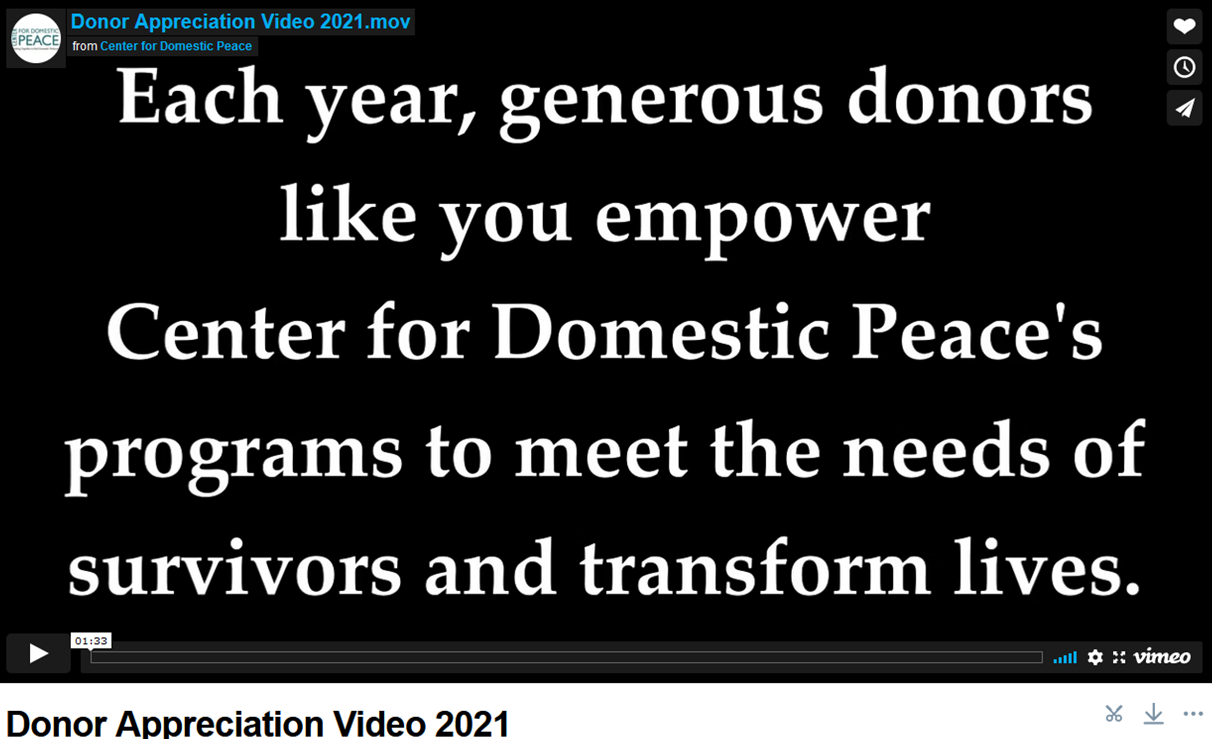Shining a Light on the Link Between Domestic Violence and Animal Abuse
Animal abuse is often the first visible sign of a family in trouble. C4DP is partnering with Marin Humane to directly address this issue. This past April, C4DP and Marin Humane hosted a 90-minute, online webinar on the link between animal abuse and domestic violence. Phil Arkow, Coordinator with National Link Coalition, led a presentation to more than 140 attendees from across the nation interested in learning about the issue, our partnership, and what practical steps community members can take to help people and animals in need.
In a domestic violence situation, abusers may manipulate and control their human victims through threatened or actual violence against family pets. Batterers attempt to control their victims by threatening, torturing, or killing the victim’s animals. Sadly, children are usually witness to this behavior as well.
Up to 71% of domestic violence survivors with companion animals report that their abusers threatened, injured, or killed their pets. In fact, in one study, 48% of domestic violence survivors with companion animals surveyed stayed in an abusive situation because they had nowhere to take their pets; in 75% of these cases, the abuse happened in the presence of children.
To many survivors, pets are part of the family, and it is imperative that there are safe options for these animals as well as for survivors.
We are fortunate to partner with Marin Humane, which will board survivors’ companion animals free of charge until they are able to find a new home that is safe for them and their beloved pet. At C4DP’s emergency shelter, we accommodate companion animals, however, we are limited as to how many can be in the shelter at one time. We are fortunate that if more space is needed, the Marin Humane will assist us!
You can help stop the pattern of violence by recognizing that animal abuse is an indicator of serious problems. Reporting animal abuse can help authorities stop other types of violence and vice versa. You can also call our English/Spanish 24-7 hotline for help with safety planning for you and your pets.
A recording of the webinar can be found here: https://centerfordomesticpeace.org/animal-abuse/
It’s important to note that children who hurt animals may be acting out of their own experience, i.e. what they observe or what they undergo themselves at home – a warning sign for possible abuse and indicator of future abuse. A 2013 study found that 43% of those who commit school massacres also committed acts of cruelty to animals.





